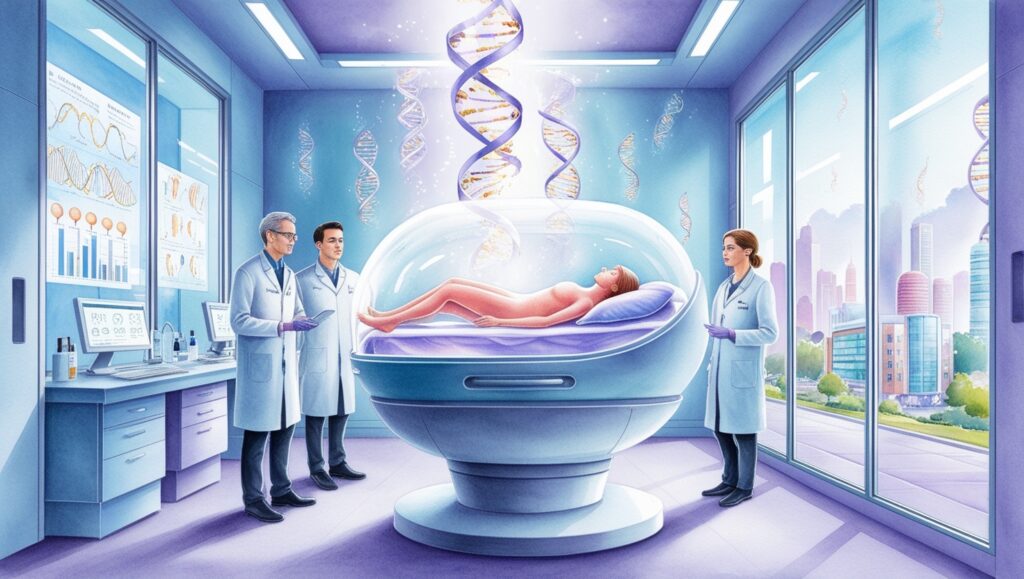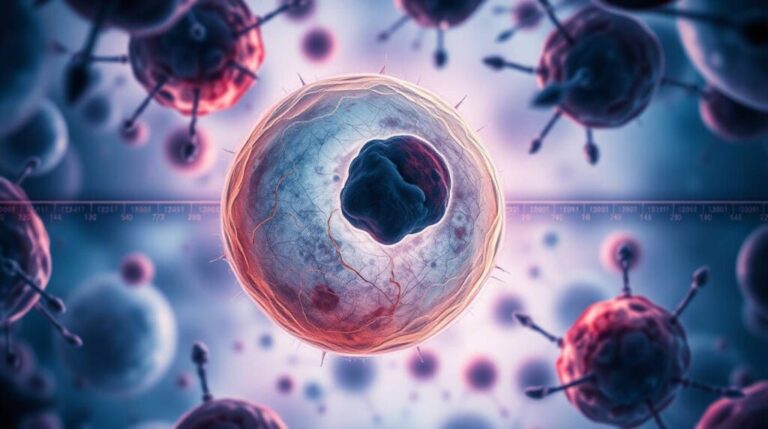What If We Could Live Forever Using Genetic Engineering 2025
What If We Could Live Forever Using Genetic Engineering 2025
The dream of immortality is as old as human civilization itself. From ancient myths about the Fountain of Youth to science fiction tales of digital consciousness, the idea of living forever has fascinated thinkers, scientists, and everyday people alike. But in 2025, we’re closer than ever to turning that fantasy into a scientific possibility—through the lens of genetic engineering.
What if we could reprogram our biology, fix aging at the molecular level, and extend human life indefinitely? Let’s dive into the science, the speculation, and the staggering implications of this futuristic concept.
The Science of Aging: Can It Be Reversed?
Aging is not just the passage of time—it’s a biological process. At its core, aging results from cellular damage, DNA mutations, oxidative stress, telomere shortening, and other factors that gradually degrade our body’s function. But what if we could fix those issues?
That’s where genetic engineering comes in.
Genetic Tools in 2025
In recent years, powerful tools like CRISPR-Cas9, base editing, and epigenetic reprogramming have revolutionized genetic science. These technologies allow scientists to:
- Edit faulty genes
- Remove mutations
- Reset epigenetic markers associated with aging
- Regrow tissues and organs from stem cells
Researchers are already experimenting with genes like FOXO3, SIRT1, and TP53—genes known to influence longevity. In mice and worms, tweaking these genes has extended lifespan by up to 50%. While we’re still in the early stages with humans, the potential is enormous.




Pathways to Immortality Through Genetic Engineering
If we assume continued breakthroughs in biotech, here are several pathways that might lead us to biological immortality:
1. Telomere Extension
Telomeres are protective caps on the ends of our chromosomes that shorten each time a cell divides. Once they become too short, the cell stops functioning properly. Genetic therapies could reactivate the enzyme telomerase, which rebuilds telomeres and slows aging.
Example: In 2024, researchers at a major biotech firm used telomerase activation in mice to extend their healthy lifespan by 30% without increasing cancer risk.
2. Senescent Cell Removal
As we age, our bodies accumulate senescent cells—cells that no longer divide but don’t die. These cells secrete harmful chemicals that damage nearby tissue. Genetic engineering might allow us to target and eliminate these cells, reducing inflammation and restoring tissue function.
3. DNA Repair Enhancement
One of the biggest causes of aging is the accumulation of DNA damage. Using gene editing, scientists could enhance natural DNA repair mechanisms, making cells more resilient and less prone to mutation.
4. Epigenetic Reprogramming
This technique involves resetting a cell’s “biological clock” by modifying gene expression, not the DNA itself. Some scientists believe we can return cells to a more youthful state, effectively reversing aspects of aging.
Ethical and Social Implications
Living forever might sound incredible, but it comes with massive ethical baggage. Here are some questions we’d have to grapple with:
- Who gets access to life-extending treatments? Just the wealthy?
- What happens to population growth, resource distribution, and employment?
- Would immortality change our sense of purpose, risk, and identity?
- Could living forever dull the meaning of life?
There’s also the risk of unintended consequences. What if reactivating certain genes to extend life also increases the risk of cancer? Or creates unforeseen changes in behavior or cognition?
Could This Actually Happen?
In 2025, we’re not immortal yet. However, longevity research is booming, and life-extension breakthroughs are happening faster than many anticipated.
Companies like Calico (Google’s longevity arm), Altos Labs, and numerous university labs are pushing boundaries in age reversal. Clinical trials involving gene therapies for specific aging-related diseases—like macular degeneration, Alzheimer’s, and cardiovascular disease—are already underway.
Experts believe that within the next 10 to 20 years, we might not achieve full immortality, but we could dramatically extend the human lifespan and quality of life.
A Future Without Death?
If genetic engineering could one day eliminate aging and disease, we might see an entirely new kind of human society:
- People living for centuries
- Shifting family and social structures
- Long-term careers and infinite learning
- New philosophical questions about existence
But we’d also face major challenges: environmental strain, overpopulation, and existential boredom. It’s one thing to imagine a world without death—living in it would be something entirely different.
Conclusion
The idea of living forever using genetic engineering may seem like science fiction, but in 2025, it’s becoming more of a scientific possibility than ever before. By manipulating the very code of life, we might one day control aging, conquer disease, and rewrite what it means to be human.
But with this power comes the responsibility to consider the moral, social, and ecological impact of eternal life. We must ask: just because we can live forever—should we?
—
For a deeper look into genetic engineering and aging, check out:
https://en.wikipedia.org/wiki/Gene_therapy
—
🧬 Explore more of our speculative science blogs:
What If Human Consciousness Could Be Uploaded Into Light 2025
https://edgythoughts.com/what-if-human-consciousness-could-be-uploaded-into-light-2025
What If Dreams Could Be Recorded and Played Back 2025
https://edgythoughts.com/what-if-dreams-could-be-recorded-and-played-back-2025





